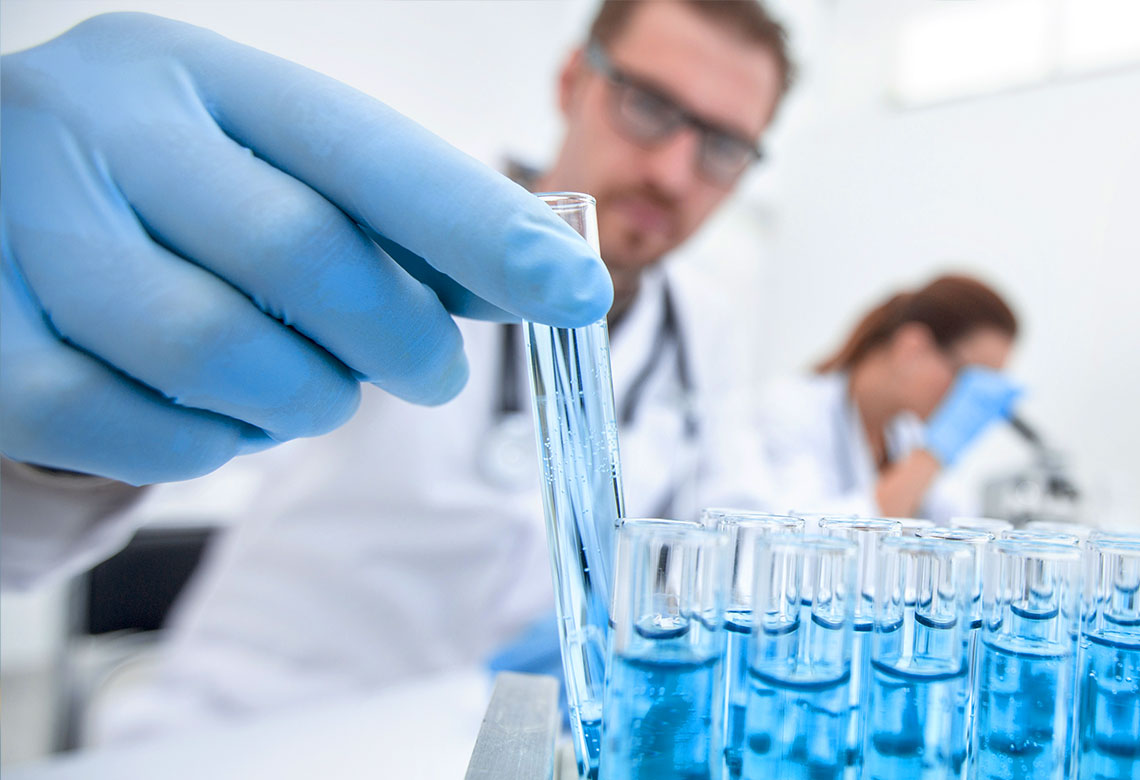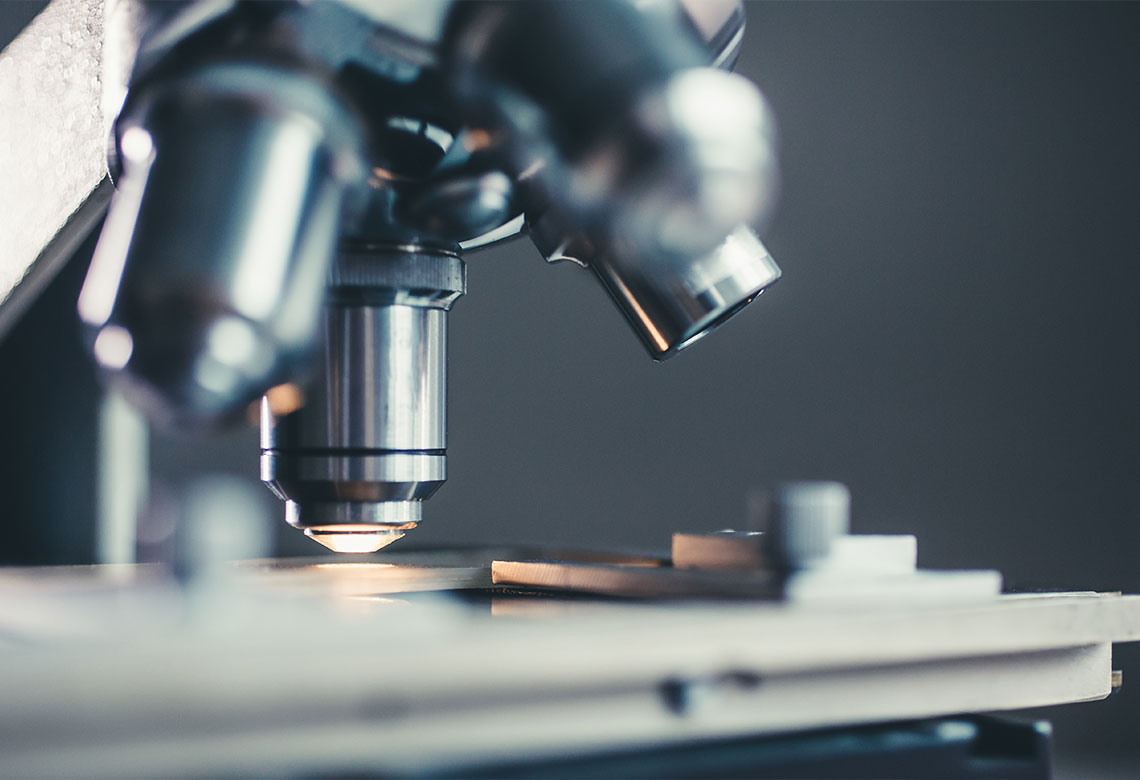Research Group Translational Critical Care Medicine
We are an interdisciplinary group of intensivists with a wide background of nephrology, gastroenterology/hepatology as well as pulmonary medicine focusing on Translational Critical Care Medicine. Our experimental focus lies on endothelial permeability, injury to the endothelial glycocalyx and microcirculatory dysfunction in critical illness.
As a clinical focus, we initiated several prospective studies that investigate novel treatment options for septic shock (EXCHANGE), ARDS (SPARE-14), non-occlusive mesenteric ischemia (REPERFUSE) and CAR-T-cell associated Cytokine relase syndrome (CYTORELEASE-Ex).
From a translational aspect, we investigate from „bedside to bench“ in patients included in these studies the effect of extracorporeal treatment approaches on endothelial permeability, glycocalyx and microcirculation.
Experimental Focus of Research
Our group is interested in molecular mechanisms regulating endothelial barrier function in response to inflammation. We have been focusing on the Angiopoietin (Angpt) / Tie ligand receptor system over the last ten years. Tie2 is a transmembrane receptor tyrosinekinase that is essential for embryonic vessel development. In mature organisms its function shifts toward maintenance of endothelial homeostasis and reaction to insults. Angpt-1 is the major circulating Tie2 agonist that promotes protective anti-permeability signals, whereas Angpt-2 has antagonistic properties. Our group was the first to proof in a murine knockout model that Angpt-2 directly contributes to sepsis morbidity and mortality.
Based on this finding we have conducted a series of experiments exploring potential therapeutic strategies (antibody, siRNA etc.) to eliminate or block the injurious Angpt-2 protein in sepsis models. We are also conducting drug repurposing screens to identify potential off-target Angpt-2 regulators (T. Pape).
Recently, we have gained much attention in the regulation of the Tie2 receptor expression per se and are currently working on the underlying mechanisms of posttranslational Tie2 modifications (T. Idowu).
MicroRNAs might be involved in Tie2 processing in disease as well so that we are studying the potential of MIRs in inflammatory diseases (V. Etzrodt).
We are also interested in the interaction between endothelial cells and pericytes – both with regard to Angiopoietin signaling and bioactive adrenomedullin (bioADM) (P. Gronski).
Another focus lies in the investigation of the endothelial glycocalyx both in vivo (SDF imaging) and in-vitro (endothelial microperfusion chip model). As injury of the endothelial glycocalyx can be found early in critical illness and substantially contributes to endothelial dysfunction we, together with the AG Haller, investigate regulation of glycocalyx degradation both in septic shock (U. Hillebrand) as well as severe COVID-19 (P. Gronski).
Clinical Focus of Research
A major interest of our clinical research is focused on questions regarding medical critical care mostly in the context of sepsis and septic shock. In a prospective non-randomized pilot study, we could demonstrate that early therapeutic plasma exchange (TPE) improves hemodynamics and endothelial permeability as well as reduced inflammatory cytokines in patients with severe septic shock (EXCHANGE Pilot, published). We are currently conducting a randomized controlled trial together with the University Hospital Bonn (Dr. Bode/Putensen) to analyze the role of TPE in early septic shock on hemodynamic stability (EXCHANGE I, NCT04231994). Funding for a German multicenter RCT with a clinically meaningful endpoint is under review at the DFG (EXCHANGE II).
In order to better understand sepsis and ARDS we are collecting human biomaterials (bronchoalveolar lavage and blood) and clinical characteristics of sepsis +/- ARDS patients. This Sepsis and ARDS Register (SPARE-14) will help to translate experimental findings of our basic research group from bench to bedside.
Support of non-intubated patients with both chronic and acute lung failure with extra-corporeal membrane oxygenation, termed Awake ECMO, is an innovative strategy that has been first established at Hannover medical school as it potentially completely avoids the multiple potential side effects of invasive ventilation. We continue to explore this strategy in selected patient cohorts such as patients with PcP associated ARDS. ECMO support in special patient cohorts, e.g. patients with diffuse alveolar hemorrhage, and conditions, e.g. heparin free ECMO, are further clinical interests of our group.
We are also conducting research on extracorporeal cytokine removal in patients treated with CAR-T cells suffering from severe cytokine release syndrome (CytoreleaseEx, NCT04048434). This project is financially supported by Cytosorbents.
We are currently running a prospective observational trial to analyze intra-arterial prostaglandine infusion into the superior mesenteric artery in non-occlusive mesenteric ischemia (NOMI) patients (REPERFUSE, NCT04235634) . This project is conducted together with our Department of Interventional Radiology.
High volume TPE in acute liver failure has been shown to improve survival. We investigate more feasible low volume TPE strategies in both acute- and acute on chronic liver failure.
- Prof. Samir Parikh, MD, BIDMC and Harvard Medical School, Boston, MA, USA
- Paul van Slyke, PhD, Vasomune Therapeutics, Toronto, Canada
- PD Dr. Christian Bode, Operative Intensive Care Medicine, University Hospital Bonn
- Dr. Andrew Aswani, MD, PhD, Critical Care Medicine and Anesthesia, Guy’s and St. Thomas’ NHS Foundation Trust, London, UK
- Prof. Dr. Hermann Haller, Nephrology, Hannover Medical School
- Prof. Dr. Marius Hoeper, and Dr. Olaf Wiesner, Respiratory and Critical Care Medicine, Hannover Medical School
- Prof. Dr. Antje Prasse, Department of Respiratory Medicine at Hannover Medical School and Fraunhofer Institute for Toxicology and Experimental Medicine (ITEM), Hannover
- Prof. Dr. Jan T Kielstein, Medical Clinic V, Nephrology, Rheumatology, Blood Purification, Academic Teaching Hospital Brunswick
- Prof. Dr. Christian Könecke, Hematology and Oncology, Hannover Medical School
- Prof. Dr. rer. nat. Ulrich Maus PhD, Experimental Pneumology, Hannover Medical School
- PD Dr. Jan Hinrichs, Interventional Radiology, Hannover Medical School
- Prof. Dr. Ulrich Budde, Hemostasiology, University Hospital Hamburg
- Prof. Dr. Malgorzata Wygrecka, PhD, Biochemistry, University Gießen
- Dr. Markus Busch, Dr. Andrea Schneider and PD Dr. Benjamin Maasoumy, Gastroenterology and Hepatology, Hannover Medical School
Our experiments are currently supported by the „Deutsche Forschungsgemeinschaft“ (DFG), the „Deutsche Lungenzentrum“ (DZL) and others.
Members of our group are actively contributing to annual meeting of the following societies:
- European Society of Intensive Care Medicine (ESICM)
- European Respiratory Society (ERS)
- Deutsche Gesellschaft für Internistische Intensiv- und Notfallmedizin (DGIIN)
- Deutsche Interdisziplinäre Vereinigung für Intensiv- und Notfallmedizin (DIVI)
- SepsisUpdate
- Sascha David: David.Sascha@mh-hannover.de, sascha.david@usz.ch
- Klaus Stahl: Stahl.Klaus@mh-hannover.de
- Benjamin Seeliger: Seeliger.Benjamin@mh-hannover.de
- Julius Schmidt: Schmidt.Julius@mh-hannover.de
- Prof. Dr. Sascha David is a nephrologist and intensivist. He holds positions both as the section chief of internal intensive care medicine at University Hospital Zürich, Switzerland and Hannover Medical School, where he continues his lab. He is the initiator of this group and has a broad spectrum of interest in endothelial pathology as well as translational sepsis reasearch.
- Dr. Klaus Stahl is a nephrologist and continues his education in gastroenterology and critical care medicine at Hannover Medical School. He mainly focuses on extracorporeal therapies for sepsis, cytokine release syndrom, acute- and acute on chronic liver failure as well as non-occlusive mesenteric ischemia.
- Dr. Benjamin Seeliger is specializing in respiratory and critical care medicine at Hannover Medical School with a special focus on interstitial lung diseases and acute respiratory distress syndrome and ECMO support.
- Dr. Julius Schmidt is specialized in nephrology and critical care medicine at Hannover Medical School. He is mainly interested in drug pharmacokinetics and the effects of extracorporeal treatment modalities in the care of critically ill patients.

- Yvonne Nicolai (RA): Lab manager that supervises all experiments and teaches students
- Temitayo O Idowu (Msc): PhD student (Mechanisms of Tie2 cleavage) – experiments ongoing
- Valerie Etzrodt (cand. med.): Struc Med thesis (Role of MIR155 in endothelial permeability) – experiments ongoing
- Philipp Gronski (cand. med.): Doctoral thesis (Injury to the endothelial glycoclayx in severe COVID-19) – experiments ongoing
- Thorben Pape (cand. med.): Struc Med Thesis (Pharmaceutical off-target effects on Ang-2) – experiments ongoing
- Janine Hauschild (cand. med.): Doctoral thesis (Dual Ang2 VEGF inhibition in murine sepsis) – manuscript published
- Eva Hachmeister (cand. med.): Doctoral thesis (Role of statins on Ang2 (ARDSnet trial) – thesis writing
- Hannah Knaup (cand. med.): Doctoral thesis (Plasmaexchange in sepsis) – reviews completed / summa cum laude
- Jennifer Retzlaff: Struc Med Thesis (Flunarizine - Ang2) – reviews completed / summa cum laude
- Ramin Rokhzan: Struc Med thesis / Biomedical Exchange Program (Boston, Harvard Medical School) - reviews completed / summa cum laude
- Dilek Cansiz: Medical documentation assistant – Spare14 ARDS/Sepsis Registry (LOGO) Coordination und Data-management
- Nina Rittgerodt (cand. med.): Doctoral thesis (REPERFUSE) - recruiting
- Philipp Wand (cand. med.): Doctoral thesis (EXCHANGE) - recruiting
- Robert Friedrich (cand. med.): Student co-worker / Project: anticoagulation in VV-ECMO – manuscript in preparation
- Jan Fuge MPH, Datamanagement (Pneumology): continuous generous IT and statistical support
- Hauschildt J, Schrimpf C, Thamm K, Retzlaff J, Idowu TO, von Kaisenberg C, et al. Dual Pharmacological Inhibition of Angiopoietin-2 and VEGF-A in Murine Experimental Sepsis. Journal of vascular research. 2020;57(1):34-45.
- Kiyan Y, Tkachuk S, Kurselis K, Shushakova N, Stahl K, Dawodu D, et al. Heparanase-2 protects from LPS-mediated endothelial injury by inhibiting TLR4 signalling. Scientific reports. 2019;9(1):13591.
- Thamm K, Schrimpf C, Retzlaff J, Idowu TO, van Meurs M, Zijlstra JG, et al. Molecular Regulation of Acute Tie2 Suppression in Sepsis. Critical care medicine. 2018;46(9):e928-e36.
- Retzlaff J, Thamm K, Ghosh CC, Ziegler W, Haller H, Parikh SM, et al. Flunarizine suppresses endothelial Angiopoietin-2 in a calcium - dependent fashion in sepsis. Scientific reports. 2017;7:44113.
- Ghosh CC, David S, Zhang R, Berghelli A, Milam K, Higgins SJ, et al. Gene control of tyrosine kinase TIE2 and vascular manifestations of infections. Proceedings of the National Academy of Sciences of the United States of America. 2016;113(9):2472-7.
- Ghosh CC, Thamm K, Berghelli AV, Schrimpf C, Maski MR, Abid T, et al. Drug Repurposing Screen Identifies Foxo1-Dependent Angiopoietin-2 Regulation in Sepsis. Critical care medicine. 2015;43(7):e230-40.
- Stiehl T, Thamm K, Kaufmann J, Schaeper U, Kirsch T, Haller H, et al. Lung-targeted RNA interference against angiopoietin-2 ameliorates multiple organ dysfunction and death in sepsis. Critical care medicine. 2014;42(10):e654-62.
- David S, Mukherjee A, Ghosh CC, Yano M, Khankin EV, Wenger JB, et al. Angiopoietin-2 may contribute to multiple organ dysfunction and death in sepsis*. Critical care medicine. 2012;40(11):3034-41.
- Stahl K, Busch M, Fuge J, Schneider A, Manns MP, Seeliger B, et al. Therapeutic plasma exchange in acute on chronic liver failure. Journal of clinical apheresis. 2020.
- Stahl K, Schmidt BMW, Hoeper MM, Skripuletz T, Mohn N, Beutel G, et al. Extracorporeal cytokine removal in severe CAR-T cell associated cytokine release syndrome. Journal of critical care. 2020;57:124-9.
- Stahl K, Schmidt JJ, Seeliger B, Schmidt BMW, Welte T, Haller H, et al. Effect of therapeutic plasma exchange on endothelial activation and coagulation-related parameters in septic shock. Critical care. 2020;24(1):71.
- Seeliger B, Stahl K, Schenk H, Schmidt JJ, Wiesner O, Welte T, et al. Extracorporeal Membrane Oxygenation for Severe ARDS Due to Immune Diffuse Alveolar Hemorrhage: A Retrospective Observational Study. Chest. 2020;157(3):744-7.
- Becker LS, Stahl K, Meine TC, von Falck C, Meyer BC, Dewald CLA, et al. Non-occlusive mesenteric ischemia (NOMI): evaluation of 2D-perfusion angiography (2D-PA) for early treatment response assessment. Abdominal radiology. 2020.
- Stahl K, Seeliger B, Busch M, Wiesner O, Welte T, Eder M, et al. Maintenance Immunosuppression Is Associated With Better Outcome in the 2017/2018 Influenza Epidemic. Open forum infectious diseases. 2019;6(10):ofz381.
- Stahl K, Schenk H, Seeliger B, Wiesner O, Schmidt JJ, Bauersachs J, et al. Extracorporeal membrane oxygenation for acute respiratory distress syndrome due to Pneumocystis pneumonia. The European respiratory journal. 2019;54(3).
- Stahl K, Hadem J, Schneider A, Manns MP, Wiesner O, Schmidt BMW, et al. Therapeutic plasma exchange in acute liver failure. Journal of clinical apheresis. 2019;34(5):589-97.
- Stahl K, Busch M, Maschke SK, Schneider A, Manns MP, Fuge J, et al. A Retrospective Analysis of Nonocclusive Mesenteric Ischemia in Medical and Surgical ICU Patients: Clinical Data on Demography, Clinical Signs, and Survival. Journal of intensive care medicine. 2019:885066619837911.
- Knaup H, Stahl K, Schmidt BMW, Idowu TO, Busch M, Wiesner O, et al. Early therapeutic plasma exchange in septic shock: a prospective open-label nonrandomized pilot study focusing on safety, hemodynamics, vascular barrier function, and biologic markers. Critical care. 2018;22(1):285.



